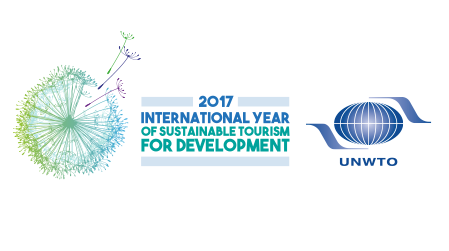With the International Year of Sustainable Tourism for Development focus on travelling with respect (#TravelEnjoyRespect) we have focused on the UN’s Sustainable Development Goals. Respect is one of the core values of Responsible Tourism, as are the other elements of the UNWTO campaign:
Honouring our hosts and our common heritage, being an informed traveller and protecting our planet.
On World Responsible Tourism Day, Wednesday November 8th we are focusing on the UN’s Sustainable Development Goals and in particular the local economic impacts of tourism businesses. Most of the work done on local economic impact uses national data and applies it to the tourism sector. But, if you use national data to report the local economic value of fruit and vegetable purchasing by a hotel for example, it is not possible to distinguish those businesses taking active steps to create decent work, promote local culture and products and to manage tourism on and in the oceans sustainably.
For the WTM Responsible Tourism Awards which will be presented on World Responsible Tourism Day, Wednesday November 8th, we have sought applications from businesses and tourism organisations which are able to provide evidence of the impacts of their activity. We have some very strong application with solid evidence of the contribution which individual businesses can make to local sustainable development – all development is ultimately local. The judges are looking to recognise a range of approaches to reporting impact and communicating it to consumers, local people and governments – we are looking for solid evidence of impact. The longlist will be announced at the end of the month.
In the Responsible Tourism Theatre at 13:45 on Monday 6th November we have a panel on: What next for certification? This addressing a similar issue about transparent reporting: How can a consumer know what a particular business has achieved? No one can tell from the labels which hotel locally has the best employment conditions or which uses the least water per guest night. As Justin Francis has pointed out: When you buy organic certified food you know no pesticides have been used. When you buy Fair Trade coffee you know the farmer has been paid a little extra. When you book a sustainable tourism-certified hotel under existing schemes, you don’t know whether they use a ‘reasonable’ or ‘sustainable’ amount of water or energy; in fact figures are rarely even made available.”
The panel sessions on Wednesday afternoon are all focussed on the SDGs, a chance to hear from some of the global leaders who are developing ways in which their businesses can report to consumers, local people and governments. There will be opportunity to hear about why they have taken reporting another step forward, how they have done it and to ask them about their experience – an opportunity to learn from the leaders.
On Monday 6th at 13:00 in the Responsible Tourism Theatre we have a session on the importance of tourism in Kerala, the government of Kerala funded a household census on the impacts of tourism and Dr Venu V, will be presenting the findings. In the same village Coconut Lagoon has reported on it impacts and Jose Dominic of CGH Earth Hotels will be talking about their report. This is a unique opportunity to hear about the impact of tourism at the community level and the impact of one of the businesses in the same village.






Will you also be considering the impact of Gap Year projects overseas where volunteers working in charities and social enterprises contribute to improving a local community? The money paid for their accommodation, food and transport, sometimes named clothing all goes into the local community and helps pay local salaries.